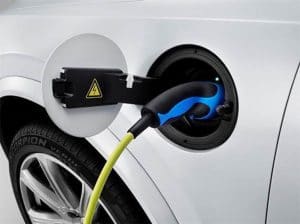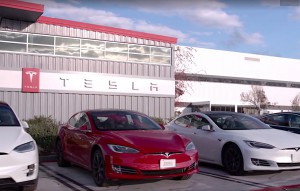
Sen. Chuck Schumer just proposed a three-part, $462 billion program to accelerate the development and sales of electric vehicles.
Senate Minority Leader Chuck Schumer wants to replace gas and diesel vehicles with those using clean, electric power, and he’s unveiled a three-part, $462 billion plan that he hopes to pass into law if Democrats regain control of Capitol Hill following the 2020 elections.
The measure has little to no chance of passing under the current administration and with Republicans in charge of the Senate. If anything, the White House has proposed ending the current subsidies of up to $7,500 for buyers of qualifying battery-electric vehicles.
The legislation, Schumer said, “could position the U.S. to lead the world in clean auto manufacturing.”
(Drivers Warming to Idea of Self-Driving Vehicles, Study Says)
While not proposed as part of the “Green New Deal” that was raised by House Democrats earlier this year, the Schumer plan is clearly pointing in the same direction, albeit focused specifically on the auto industry.

Schumer’s $462 billion plan is designed, in his words, to make America the world’s leader in electric vehicle sales and development.
According to the veteran Democrat, the measure would cost about $462 billion over a decade and not only expands available incentives but take other steps to promote the auto industry’s switch to electric power.
Proponents say such steps are critical, in part, because existing incentives will phase out as automakers reach base sales thresholds. Tesla already saw the tax credits its customers can receive cut in half last January and then halved again in July. They will phase out entirely on Jan. 1, 2020. Nissan and General Motors are also expected to soon lose their federal incentives.
Schumer’s plan has three distinct elements:
· The bulk of the proposed, $462 billion package would provide new incentives for motorists trading in gas-powered vehicles for American-made electric or hydrogen fuel-cell vehicles;
· About $45 billion would be invested in the deployment of a nationwide public charging infrastructure;
· Another $17 billion would help fund the retooling of U.S. plants to produce batteries, EVs and hydrogen fuel-cell technologies.
(No Fully Autonomous Vehicles “In My Lifetime,” Predicts Apple Co-Founder Steve Wozniak)
Automakers already are investing hundreds of billions of dollars to go electric, Ford alone in the midst of an $11 billion program, Volkswagen spending $12 billion, and General Motors saying it is on a “path to full electrification,” though it has not announced a specific price tag.
The challenge is that consumers have not yet engaged at a level that can ensure those investments will pay off. All told, battery-based vehicles – including conventional hybrids, plug-in hybrids and battery-electric vehicles – now account for around 5% of the U.S. new vehicle market. Though proponents believe that could grow significantly over the coming decade, they acknowledge that a lot of things have to fall into place for that to happen.
The Schumer proposal would address several key issues, helping lower both the cost of manufacturing and purchasing zero-emissions vehicles, while also creating the robust charging network that would ensure EV and fuel-cell vehicle owners could travel as easily as they do using today’s gas-powered models.
Schumer, a New Yorker, stands to become Senate Majority Leader, replacing the GOP’s Mitch McConnell, if the Democrats regain control of the chamber in next year’s vote.
(“Consumers Do Not Want to Buy or Drive” EVs? Not so in Europe)
He outlined his zero-emission vehicle proposal in a New York Times op-ed on Thursday. But Schumer already made it clear he will reverse the current Republican course if that happens, putting a premium on environmental legislation, last month saying a broad bill would be “one of the first things we put on the floor.”


Still another reason to vote Republican.
You’re okay with $30+ bil and counting in bailout for farms (mostly going to corp. farmers)?